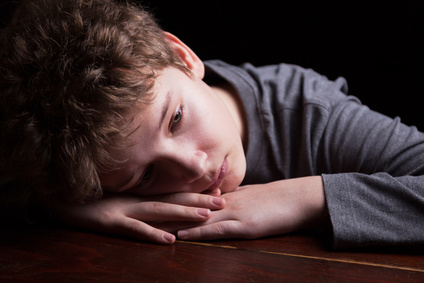 People can experience different types of mental health problems. These problems can affect your thinking, mood, and behavior. Many symptoms of mental health disorders are common. The symptoms can add up to the level of a disorder if these symptoms are more severe and/or long-lasting and affect your functioning.
People can experience different types of mental health problems. These problems can affect your thinking, mood, and behavior. Many symptoms of mental health disorders are common. The symptoms can add up to the level of a disorder if these symptoms are more severe and/or long-lasting and affect your functioning.
Early Warning Signs
Not sure if you or someone you know is living with mental health problems? Experiencing one or more of the following feelings or behaviors can be an early warning sign of a problem:
- Eating or sleeping too much or too little
- Pulling away from people and usual activities
- Having low or no energy
- Feeling numb or like nothing matters
- Having unexplained aches and pains
- Feeling helpless or hopeless
- Smoking, drinking, or using drugs more than usual
- Feeling unusually confused, forgetful, on edge, angry, upset, worried, or scared
- Yelling or fighting with family and friends
- Experiencing severe mood swings that cause problems in relationships
- Having persistent thoughts and memories you can’t get out of your head
- Hearing voices or believing things that are not true
- Thinking of harming yourself or others
- Inability to perform daily tasks like taking care of your kids or getting to work or school
Common Conditions
Below are examples of common mental health diagnoses.
Anxiety Disorders
People with anxiety disorders respond to certain objects or situations with fear and dread. Anxiety disorders can include obsessive-compulsive disorder, panic disorders, and phobias.
Behavioral Disorders
Behavioral disorders involve a pattern of disruptive behaviors in children that last for at least 6 months and cause problems in school, at home and in social situations. Examples of behavioral disorders include Attention Deficit Hyperactive Disorder (ADHD), Conduct Disorder, and Oppositional-Defiant Disorder (ODD).
Eating Disorders
Eating disorders involve extreme emotions, attitudes, and behaviors involving weight and food. Eating disorders can include anorexia, bulimia, and binge eating.
Mental Health and Substance Use Disorders
Mental health problems and substance abuse disorders sometimes occur together.
Mood Disorders
Mood disorders involve persistent feelings of sadness or periods of feeling overly happy, or fluctuating between extreme happiness and extreme sadness. Mood disorders can include depression, bipolar disorder, Seasonal Affective Disorder (SAD), and self-harm.
Obsessive-Compulsive Disorder
If you have OCD, you have repeated, upsetting thoughts called obsessions. You do the same thing over and over again to try to make the thoughts go away. Those repeated actions are called compulsions.
Personality Disorders
People with personality disorders have extreme and inflexible personality traits that are distressing to the person and may cause problems in work, school, or social relationships. Personality disorders can include antisocial personality disorder and borderline personality disorder.
Psychotic Disorders
People with psychotic disorders experience a range of symptoms, including hallucinations and delusions. An example of a psychotic disorder is schizophrenia.
Suicidal Behavior
Suicide causes immeasurable pain, suffering, and loss to individuals, families, and communities nationwide.
Trauma and Stress Related Disorders
Post-traumatic stress disorder (PTSD) can occur after living through or seeing a traumatic event, such as war, a hurricane, rape, physical abuse or a bad accident. PTSD makes you feel stressed and afraid after the danger is over.
Get Help
988 Suicide & Crisis Lifeline
Call or text 988 or chat 988lifeline.org
Only a medical or behavioral health provider can diagnose someone.
Source: Mentalhealth.gov | What To Look For, https://www.mentalhealth.gov/what-to-look-for | Public domain. Last Updated: 03/10/2022. Retrieved February 2023.
A screening can help you determine if you or someone you care about should contact a mental health professional. CHC teletherapy services are available now. Call or email our Care Coordinators at 650.688.3625 or careteam@testing.chconline.org to set up a free 30-minute Care Consultation.
This resource is filed under:





